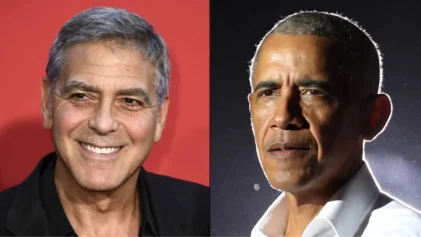While the specter of the Iraq War continues to hang over President Obama like a storm cloud, impinging on his willingness to get involved in the Syrian civil war, the White House is now considering providing weapons to Syrian rebels, according to a story in the Washington Post and other published reports.
The tentative confirmation by U.S. intelligence that Syria’s President Bashar al-Assad has used chemical weapons against its citizens is forcing the Obama’s hand, pushing him to move closer to a commitment of U.S. resources in the troubled region. But in a wide-ranging news conference yesterday at the White House, the president’s reluctance was still on full display.
The president said investigators first had to determine if Syrian government forces intentionally used the gas, if it was accidentally released or if insurgents or other groups fired the weapons. He said such conclusive proof was necessary to win international support for action.
“If we end up rushing to judgment without hard, effective evidence, then we may find ourselves in the position where we can’t mobilize the international community to support what we do,” he said. “There may be objections, even among some people in the region who are sympathetic with the opposition, if we take action.”
If he did get the hard evidence showing Syrian forces used poison gas, he said he “would rethink a range” of retaliatory options that may not include military action. He said he would need international collaboration for any military operation since the burden of a response is not America’s alone.
“What’s happening in Syria is a blemish on the international community generally,” he said. Confirmed use of poison gas by Syrian forces would be “a game-changer not simply for the United States, but for the international community.”
Asked directly if that meant the administration would take military action, he said, “By ‘game changer,’ I mean that we would have to rethink the range of options that are available to us.” If the White House obtains conclusive proof of poison gas use, “that means that there’s some options that we might not otherwise exercise that we would … strongly consider.”
The president is walking a fine line between backing up threats against Assad and building up pressure against Syria’s Russian and Iranian allies, even as he seeks to avoid becoming drawn into another war in the Muslim world.
Officials said the administration is considering supplying nonlethal military equipment such as armor, communications gear, night-vision goggles and vehicles to Syrian insurgent groups, officials said.
“We continue to consider all other possible options that would accomplish our objective of hastening a political transition,” said Caitlin Hayden, spokeswoman for the National Security Council.
Another senior U.S. official told the Los Angeles Times that arming the rebels was “on the table — and has been for some time — but there’s a ways to go before any decision is made.”
The president addressed the situation in Syria with the press after a huge bomb exploded Tuesday in a busy central square in Damascus, killing at least 13 people and injuring more than 70.
In addition, further complicating matters, the leader of Lebanon’s Hezbollah militants said on Tuesday that his Iranian-backed group was ready to intervene to help Assad, and warned that Syrian rebels will not be able to defeat the regime.
Hezbollah is a powerful cadre of Shia Muslims, while the rebels fighting Assad are mostly Sunnis.
“You will not be able to take Damascus by force and you will not be able to topple the regime militarily. This is a long battle,” said Hezbollah chief, Sheik Hassan Nasrallah, addressing the Syrian opposition.
“Syria has real friends in the region and in the world who will not allow Syria to fall into the hands of America or Israel,” he added.
Obama is sending Secretary of State John F. Kerry to Moscow to convince the Kremlin to end its support of the Assad regime.
Each side in the Syrian conflict has accused the other of using chemical weapons. Syria’s ambassador to the United Nations, Bashar Jaafari, said yesterday that rebels used “chemical material” in Idlib province on Monday to make it appear that the government had deployed chemical weapons.
The Syrian government has not allowed a U.N. investigation of the alleged use of chemical weapons to proceed because Assad believes the investigators are seeking too much access.
Some members of Congress and other advocates have urged the administration to take action such as arming the rebels, creating no-fly zones to protect refugees, or using military force to destroy or seize Syria’s huge stockpile of chemical weapons. The White House and Pentagon have resisted such measures, fearing that U.S. weapons shipments could end up in the hands of Islamic militants.
Conservatives say that Obama is raising the bar so high that it is unlikely he will take action and U.S. enemies, such as Iran and North Korea, will now believe his threats can be ignored.


